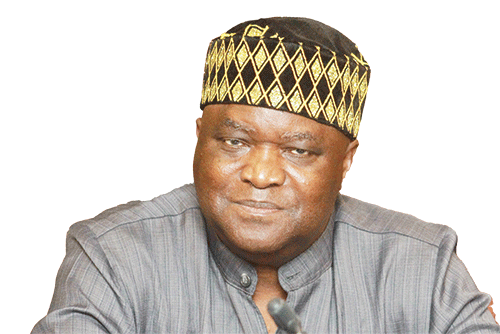Home affairs minister Albert Kawana has tabled the new Marriage Bill, which provides for the solemnisation of marriages in Namibia, the validation and recognition of certain marriages, as well as incidental matters.
The draft law, which includes definitions of marriage, foreign marriage, spouse and opposite sexes, clarifies that same-sex marriages are not valid in Namibia, regardless of where they are solemnised.
Should this Bill come into effect, it will be a significant setback for same-sex couples and the LGBTQI+ community, who have tried challenging the government for their marriages to be recognised.
“The Executive branch of the State has a duty to protect the values, cultural norms and traditions of the Namibian people,” said Kawana in parliament on Tuesday.
He said these social values mirror the ideology of Namibian society.
“Therefore, it is imperative that legislative reforms be put in place to make it categorically clear and beyond any shadow of a doubt that same-sex marriages should not be recognised in Namibia because they are contrary to the cultural norms,
traditions, ideology and religious beliefs of the Namibian people,” explained the minister.
He added that several laws would need to be amended or repealed to clearly define the terms ‘marriage’ and ‘spouse’.
Override
If enacted, the Marriage Bill will also override the topical private member’s bills, introduced by Swapo backbencher Jerry ‘Maudjuu’ Ekandjo, which his critics have since dubbed the ‘Jerry Anti-gay Bills’.
The two bills sought to define the term ‘spouse’, and amend the Marriage Act of 1961 to block the recognition of same-sex marriages in Namibia.
The documents are currently before President Nangolo Mbumbo for ascend or rejection.
Contrary to Ekandjo’s Bill, the Cabinet has opted for a comprehensive review of the marriage legislation, and has proposed a new Marriage Bill to address various aspects related to marriage.
“As a result, it has been decided to come up with a completely new law to regulate civil marriages in Namibia, and to repeal the Marriage Act of 1961 (Act No. 25 of 1961), including all its subsequent amendments,” stated Kawana.
Genesis
In 2023, two consolidated appeal cases involving foreign nationals “married” to Namibians in same-sex marriages in countries where such unions are recognised took the government to court, challenging the ministry’s refusal to recognise the foreign nationals as “spouses”.
The relevant section exempts foreign “spouses” of Namibian nationals from applying for entry and residence permits by virtue of marriage.
The ministry reasoned the term “spouse” in that section refers to a spouse in a heterosexual marriage as recognised by Namibian laws, being a marriage between a man and a woman – not same-sex marriages.
The two foreign nationals argued the ministry’s decision was unlawful, contending that if one adopts the common law principle known as lex loci celebrationis matrimonium (the validity of a marriage is determined by the legal requirements of the foreign country in which it was concluded), their marriages should be valid because both South Africa and Germany recognise same-sex marriage.
They further argued their exclusion from the term “spouse” in circumstances where their marriages were valid under the common law principle violated their right to dignity.
Challenging the ruling, Kawana said the Supreme Court, in its findings, largely relied on the common law legal principle to find in favour of the foreign appellants.
Despite the Judiciary’s independence, Kawana asserted that the common law principle on which the Supreme Court relied has an exception established long ago.
“The common law principle that the validity of a marriage is governed by the law of the country where it was contracted is not absolute. Both decided cases elsewhere and legislation, including Namibian laws, provide exceptions to the general common law principle relied upon by the Supreme Court,” he explained.
He also emphasised that the values, traditions and customs of the Namibian nation are anchored in Christianity.
“As a result, Namibia today can be referred to as an overwhelmingly Christian nation. According to the Bible, as strictly interpreted, Christianity does not recognise or support same-sex marriages. In Namibia, this position is still held today. Indeed, a number of churches still solemnise marriages with the blessing of Christian values,” he said.
Struggle continues
Recently, the High Court declared unconstitutional two colonial-era laws that criminalised same-sex acts between men, marking a landmark win for the LGBTQI+ community in Namibia.
The case was brought by Namibian activist Friedel Dausab with the support of the UK-based non-governmental organisation, Human Dignity Trust.
Omar van Reenen, co-founder of the Namibia Equal Rights Movement (Equal Namibia), said they will not let it go down without a fight.
Van Reenen said the community is ready to vote out “People that are wasting our taxpayers’ money” to attack a minority group.
The outspoken activist also said since the government seems to enjoy going back and forth in court, they will again take it to court.
Van Reenen described the proposed legislation as draconian and costly for taxpayers.
“We are ready to challenge the bill and fight for our democracy,” Van Rheenen asserted.
The activist also said Kawana’s religious reference is misplaced, as this is an issue of constitutional values – not religious values.
Sweeping
The new Bill also introduces measures to address “Marriages of convenience”, especially those between Namibian citizens and foreign nationals.
The Bill comprehensively reforms marriage laws in Namibia and, if enacted, will repeal the Marriage Act in its entirety.
The Bill consists of seven parts.
The first part covers introductory provisions.
Part two covers pre-requisites to solemnisation of marriage.
Part three covers solemnisation of marriage.
Part four covers the validation and recognition of certain marriages.
Part five covers marriages involving foreign nationals.
Part six covers offences and penalties. Part seven covers general provisions.
-ashikololo@nepc.com.na
(Kawana)


